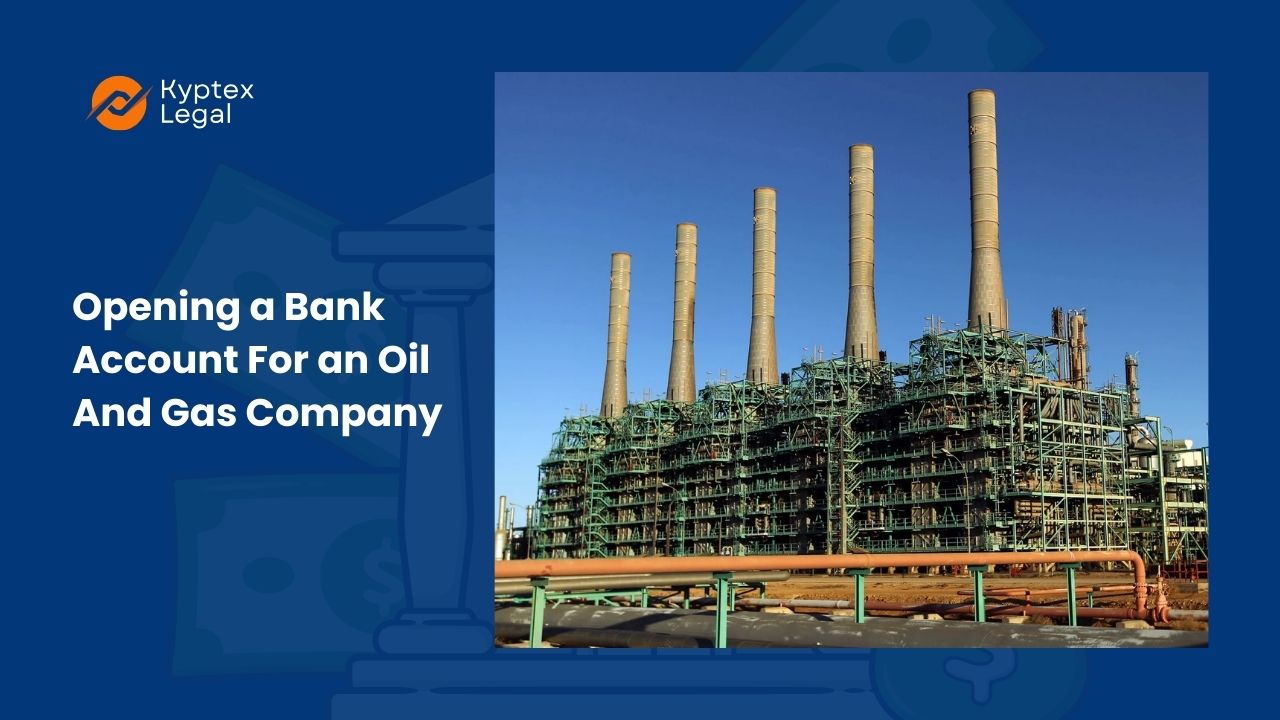
The oil and gas industry, which is capital-intensive and subject to stringent regulations, has a substantial impact on the global economy. Businesses in the oil and gas sector are encountering difficulties in establishing bank accounts, which is a critical initial step in ensuring the smooth operation of their financial operations.
Why Dedicated Bank Account Matters For Oil And Gas Companies?
It is essential to maintain a business bank account that is exclusively used for business purposes.
– Ensuring Financial Transparency: It is essential to maintain a clear distinction between personal and business finances, particularly in industries such as oil and gas, which are subject to rigorous regulatory scrutiny.
– Streamlined Tax Filing: The tracking of revenues, expenses, and profits is simplified by the use of a separate account, which simplifies the tax filing process.
– Professionalism: Numerous investors, clients, and suppliers favor conducting business with organizations that have established bank accounts in countries such as the United States, the United Kingdom, or Europe.
– Managing High-Volume Transactions: Oil and gas companies are frequently involved in large transactions, such as the payment of suppliers, employees, and service providers. It is imperative to have a corporate bank account that is specifically designed to handle high-volume, high-value transactions.
Key Checkpoints Before Opening A Bank Account
Before establishing a bank account, it is crucial to assess a variety of critical factors, particularly in the oil and gas sector.
- Comprehending Local and International Laws: Oil and gas companies frequently operate across borders, necessitating a bank that comprehends both local and international banking regulations, such as anti-money laundering (AML) and know-your-customer (KYC) requirements.
- Currency and Transaction Requirements: Your organization may require the ability to conduct transactions in multiple currencies due to the global nature of oil and gas trading. It is essential to choose a bank that supports multiple currencies and has a robust international banking infrastructure.
- Financial Stability: The financial institution must have a demonstrated history of effectively managing corporate accounts for complex and substantial enterprises. This will guarantee that the account remains operational for an extended period.
- Banking Fees and Services: Supplementary services, such as currency hedging, escrow accounts, and treasury administration, may be required by oil and gas companies. Banks typically charge for the services they provide, so it is essential to understand the fee structure and the range of services they offer in order to make the right decision.
- Digital Banking Capabilities: In order to effectively manage global transactions in real-time, it will be necessary to have a bank that offers comprehensive online banking solutions, as transactions are frequently transacted across borders.
How To Open A Bank Account For Oil And Gas Company?
1. Gathering Corporate Documents And Certificates
Important documents consist of:
– Certificate of Incorporation: This official document is evidence that your organization is legally registered. It is issued by the government or the relevant corporate authority in your jurisdiction.
– Memorandum and Articles of Association: These documents provide the bank with an understanding of the structure, purpose, and operational guidelines of your company, thereby explaining how your business operates.
– Business Licenses: The bank will need to be presented with specific licenses for oil and gas operations in certain jurisdictions.
– Proof of Address: A utility receipt or official government letter that confirms the registered business address of the company.
– Board Resolution: The establishment of the bank account is authorized by this document, which also identifies the authorized signatories who are responsible for its management.
– Identification of Directors and Shareholders: Banks typically require identification documents (such as passports or national IDs) and, in certain instances, proof of address for all important stakeholders.
– Business Plan or Overview: In order to ascertain the financial requirements and operational scope of a newly established company, certain institutions may request a comprehensive business plan.
It is imperative to collect these documents in order to establish that your business is legitimate, in compliance with local regulations and has the authority to establish a corporate bank account.
2. Choosing the Right Bank
It is imperative to consider the following factors when selecting a bank:
– International presence or correspondent banking relationships
– Experience managing accounts for energy sector companies
– Online banking platforms, relationship management, and currency hedging tools are accessible.
3. Submitting Your Application
After collecting the required documentation and selecting the appropriate bank, you will be required to submit your application either online or through your account manager, contingent upon the bank’s policies. Depending on the complexity of your company’s structural framework and the internal evaluation process of the bank, the duration of this procedure may range from a few days to a few weeks.
4. Meeting Compliance and KYC Requirements
Financial crime risks are particularly prevalent in industries like oil and gas, which is why the majority of banks have instituted rigorous compliance measures. The bank will verify the documents of your company, investigate the backgrounds of the directors and shareholders, and guarantee that all transactions adhere to AML regulations during this process.
5. Account Activation
The initial deposit and the completion of the compliance evaluations will result in the activation of your bank account. You will receive your account details, which include your IBAN, SWIFT/BIC identifiers, and online banking access credentials. You are now able to begin managing the finances of your company through the account.
Conclusion
The process of establishing a bank account for an oil and gas company is a complex yet essential step in the establishment and expansion of your business. By meticulously selecting a financial institution that comprehends the distinctive requirements of your industry, you can guarantee a seamless banking experience that facilitates your organization’s operations.